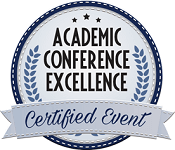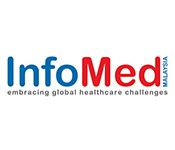Theme: Emerging Challenges and Advances in Neuroscience and Neurology
World Neuroscience Summit
On behalf of the World Neuroscience Summit, we are delighted to welcome you to join the Conference scheduled September 05-06, 2022 Dublin, Ireland, which is an exceptional gathering for the worldwide prominent scholastics in the field of Neuroscience where Directors, Scientists, Professors, Research scholars, Postdocs, Academic Staff are about to share their research work and acquiesce new emerging technological trends in the conference areas.
Neuroscience 2022 is an International platform to adverse and study about the early detection as well as treatment care based on Professional standards, and intense research to complete cure for whole Neurological Disorder. The conference contains significant international experts in Doctors, Neuro hospitals specialists, research scholars and general practitioners, Student Delegates and Exhibitors form all over the world to our conference with the theme “Emerging Challenges and Advances in Neuroscience and Neurology”. Conference will be featuring oral presentations, poster presentations, keynote talks, workshops and many more.
The conference will focus on Neuroscience, Cognitive neuroscience, Neurophysiology, Neuropathology, Vascular Dementia, Mental health, Neuro cardiology, Neurogenetics, Autonomic Neurology, Computational Neurology, Neuromarketing, Neuropediatrics and Neurorehabilitation, Neurosurgery and Neural Circuits, Neuroscience Behind the Placebo Effect, The Science of Neurotheology, Stem cell approach for Neurological Disorders, Neurotoxicology, Clinical Trials and Case Reports.
Scope and Importance
Neuroscience 2022 aims to discover advances in Neuroscience and study about the early detection as well as treatment care based on Professional standards, and intense research to complete cure for whole Neurological Disorder. The Conference is to give a platform to academicians and practitioners from multiple disciplines to debate and deliberate on social change that is covered by innovation and technology.
Who can attend?
Neuroscience 2022 brings together individuals who have an interest in different fields of Neurology like Neurosurgery, Neuroscience, Cognitive neuroscience, Neurophysiology, Neuropathology, Vascular Dementia, Mental health, Neuro cardiology, Neurogenetics, Autonomic Neurology, Computational Neurology, Neuromarketing, Neuropediatrics and Neurorehabilitation, from Neurologists and Directors, Neurosurgeons, Neuroscientists, Researchers, Specialists, Pharmacists, Physiatrists. It is a forum to discover issues of mutual concern as well as exchange knowledge, share evidence, thoughts, and make solutions.
Why to attend?
Neuroscience 2022 is one of the world's leading scientific conferences to bring together internationally renowned distinguished academics in the field of Neurology, Neuroscience, Neuropediatrics, Neurosurgeons, Neurophysiologists, Neuroscience Brain researchers, Scientists, Academic scientists, Public Health professionals, Industry researchers, Scholars to exchange about state of the art Research and Technologies and to bring discoveries of Neurology disorders to Patients. Attending International conference is being the Professional Development and to get the current state of research and the challenges to future discovery.
Benefits of Attending our conference
•Be acquainted with the modern-day improvements and demanding situations inside your industry.
•Get publication of your abstract with DOI.
•Get accredited for your inclusion.
•In phrases of the participation fee, webinars are much less expensive.
•Share with professors your study and get quick answers to your questions.
•Participate in a panel debate consultation with stay Q&A.
•Learn from all the world's best practitioners.
•Geographical Barriers Knock Down.
•Solace from the simplicity of your own home or from work.
•Archived: Ability to contact events in the recording process.
•Excellent platform for mastering new job skills.
•Global exposure to your study.
•Make new networks.
•Considerable time savings.
Target Audience
Neurologists and Directors | Neurosurgeons | Neuroscientists | Researchers | Specialists | Pharmacists | Physiatrists | Neurology associations & foundations | Professors | Researchers who use neurophysiological procedures | Professors and Students from Academia in the investigation of Neurology and Neurophysiology.
Session 1. Neuroscience
Neuroscience emphasizes the vivid assembly with the anatomy molecular biology, and physiology of neurons and neural routes of the human brain. The disciplines of neurosciences like Affecting Neuroscience, Clinical Neuroscience, Cellular Neuroscience, Behavioral Neuroscience , Cognitive Neuroscience, Molecular Neuroscience and Neuroimaging concentrating on novel approaches to study the molecular, cellular, developmental, organizational, useful, evolutionary, computational, psychosocial and health aspects of the nervous system. Discovering the complex structure of the brain and practical studies of neuroscience is always an innovative research in the field.
Session 2. Cognitive neuroscience
Cognitive neuroscience is a sector of neuroscience which explains the studies of neuroscience and the biological courses that includes human cognition, especially in which it is related amongst brain structures, its activity and cognitive purposes. The main purpose of it is to control how the brain functions and to know how classically it achieves performance. Cognitive neuroscience may be a division of both psychology and neuroscience since it includes with together the biological sciences with the behavioural sciences, such as psychiatry and psychology. Many technologies are charity to measure brain activity, like useful neuroimaging, which can provide insight into behavioural observations when behavioural data is inadequate. Decision-making is an example for a biological procedure that involves cognition
Session 3. Neurophysiology
Neurophysiology is a division of physiology which is a part of neuroscience that is associated with the study of the purposes of the nervous system. The main gears which explain about this research include electrophysiological recordings, such as patch and voltage clamps, recording of extracellular and intracellular single-unit of local field abilities, as well as some of the approaches imaging of calcium, ontogenesis, and molecular biology. Neurophysiology is linked to some sub main topics which are electrophysiology, neuroanatomical, neurochemistry, biophysics and mathematical neuroscience. It also clarifies about the medical applications used in clinical neurophysiology and clinical neuroscience
Session 4.Neuropathology
Neuropathology is the study of pathology intensive on the disease of brain, spinal cord and neural tissue. This contains of both central nervous system and the peripheral nervous system. Neuropathologist’s works in the section of anatomic pathology for diagnosis. Tissue analysis appears from either surgical biopsies or post mortem autopsies and this tissue samples contain muscle fibers and nervous tissue. Brain disease or brain injury can be connected to brain death
Session 5. Vascular dementia
Vascular dementia transpires when vessels that supply blood to the brain develop blocked or narrowed. Strokes take place when the supply of blood booming oxygen to the brain is suddenly cut off. However, not all persons with stroke will develop vascular dementia.
•Vascular Dementia Prognosis
•Young onset Dementia
•Multi-infarct Dementia
•Mixed Dementia
•Parkinson Dementia
Session 6. Mental health
Mental health disorder includes with one’s emotional, social and psychological behaviour. It belongings on how we think and performance. Mental health contains in each and every aspects of life from our childhood to adolescence throughout our life because it clarifies how an individual can handle stress, make choices. Mental Health is a state of well-being within which the individual understands his or her own skills, will address the conventional pressure of life, will work gainfully and productively, and will be in a position to form a influence to his or her community. From the views of optimistic science, mental state could embrace a human ability to relish life and to form a balance between life actions and efforts. Variations and inexpensive skilled theories in the everyday life also have an effect on however one defines mental health.
•Mental Health and Symptoms
•Mental Health Awareness
•Mental Health Nursing
Session 7. Neurocardiology
Neurocardiology is feature of neurophysiological, neuroanatomical and neurological aspects of cardiology. It mainly includes particularly neurological origin of cardiac illnesses. It is studied in sense with heart connections with central and peripheral nervous system. Clinical issues of neurocardiology contain cardiac intervention and cardiovascular findings. A succinate intervention of neuron which from time to time leads to arrhythmias and heart failure
Session 8. Neurogenetic
Neurogenetic and neurometabolic abnormalities are disorders that move how the brain functions. They occur in young children of all ages, races and genders. Neurogenetic disease is the umbrella period of chronic diseases which describe the brain abnormalities that happen following changes in the genes of the child and these cause certain brain cells to grow and function abnormally. In the case of neurometabolic abnormalities; these disorders result from problems in the enzymes of the form’s cells which are either unable to either use foods to produce the vitality the cell needs, or get rid of the breakdown products of the foods used
Session 9. Autonomic Neurology
Autonomic Neurology efforts on clinical scenarios and demonstration of clinical cases, organized into three parts. The first segment analyses the anatomical and biochemical machineries of central and peripheral nervous system control of autonomic sense, principles of autonomic pharmacology, and a clinical and laboratory method to the analysis of autonomic disorders and a clinical and laboratory approach to the diagnosis of autonomic disorders.
Session 10. Computational neuroscience
Computational neuroscience (also well-known as theoretical neuroscience or mathematical neuroscience) is a subdivision of neuroscience which services mathematical models, theoretical study and abstractions of the brain to recognize the principles that govern the advance, structure, physiology and cognitive capabilities of the nervous system.Computational neuroscience employs computational replications to validate and solve mathematical models, and so can be seen as a sub-field of theoretical neuroscience; however, the two arenas are often synonymous. The word mathematical neuroscience is also used occasionally, to stress the measurable nature of the field.
Session 11. Neuromarketing
Neuromarketing is a fresh field of marketing which practices medical technologies such as functional Magnetic Resonance Imaging (fMRI) to study the brain’s responses to selling stimuli. Researcher’s expenditure the fMRI to measure variations in activity in parts of the brain and to learn why consumers make the conclusions they do, and what part of the brain is telling them to do it. Marketing analysts will usage neuromarketing to better quantity a consumer’s preference, as the verbal response agreed to the question “Do you like this product?” may not continuously be the true answer. This knowledge will help marketers generate products and services designed more effectively and marketing campaigns absorbed more on the brain’s response. Neuromarketing will tell the marketer what the customer reacts to, whether it was the shade of the packaging, the sound the box makes when shaken, or the impression that they will have something their co-consumers do not.
Session 12. Neuropediatrics and Neurorehablitation
Pediatric neurology or child neurology mentions to a particular branch of medicine that contracts with the diagnosis and management of neurological circumstances in neonates (newborns), infants, children and adolescents. Neurological developmental problems during childhood. Childhood epilepsy.
Neurorehabilitation is a complex medical procedure which aims to aid retrieval from nervous system injury and to diminish and compensate for any functional alteration. The most imperative therapies are those that help people live their everyday lives. These contain physiotherapy, occupational therapy, psychological therapy, speech, vision therapy, and language therapy, and therapies focused on daily function and community re-integration. A particular effort is given to improving mobility and asset, as this is key to a person's individuality. Development in neuroimaging techniques has greatly improved the scope and outcome of neurorehabilitation.
•Neuropsychiatry
•Neuropsychology
•Cognitive Neurology
•Rehabilitation Robotics
Session 13. Neurosurgery and Neural Circuits
Neurosurgery may be an extremely specific medical field targeted on process of disorders of the brain and spine. A surgeon may be a MD World Health Organization makes a specialty of the designation and operation of disorders of the central and peripheral spinal cord organized with innate anomalies, vascular disorders trauma, tumors, infections of the brain or spine, stroke, or chronic diseases of the spine. Neurosurgeons these days will operate employing a magnifier to envision the tiniest of brain and spine structures. A neural structure surgeon will accomplish small surgical operation to correct vascular disorders like aneurysms.
•Types of Neurosurgery
•Neurosurgery Procedures
•Neurosurgery Treatment
A neural circuit is a population of neurons interrelated by synapses to carry out a specific function when triggered. Neural circuits interconnect to one another to form large scale brain networks. Biological neural networks have enthused the design of artificial neural networks, but artificial neural networks are usually not firm copies of their biological counterparts.
Session 14. Neuroscience Behind the Placebo Effect
Placebo effects are beneficial effects which are due to the brain–mind responses to the context during which a treatment is delivered instead of to the precise actions of the drug. They mediated by diverse processes including learning, expectations and social cognition and may influence various clinical and physiological outcomes associated with health. Emerging neuroscience evidence implicates multiple brain systems and neurochemical mediators, including opioids and dopamine.
Session 15. The science of Neurotheology
Neurotheology, also known as “spiritual neuroscience”, is a developing field of study that seeks to understand the connection between the brain science and religion. Scholars in this field, strive up front to explain the neurological ground for spiritual follows such as “the perception that time, fear or self-consciousness have disbanded; spiritual awe; oneness with the universe. There has been a current considerable interest in neurotheology worldwide. Neurotheology is multidisciplinary in nature and includes the fields of theology, religious studies, religious experience and practice, neuroscience, philosophy, cognitive science, psychology, and anthropology. Each of these fields may contribute to neurotheology and equally, neurotheology may ultimately add in arrival to each of these fields.
Session 16. Neurotoxicology
Neurotoxicity may be a sort of toxicity during which a biological, chemical, or physical agent produces an adverse effect on the structure or function of the central and/or peripheral systema nervosum. It occurs when exposure to a substance specifically, a neurotoxin or neurotoxicant alters the traditional activity of the systema nervosum in such how on cause permanent or reversible damage to nerve tissue, this will eventually disrupt or maybe kill neurons, which are cells that transmit and process signals within the brain and other parts of the systema nervosum .
Session 17. Stem cell approach for Neurological Disorders
Stem cells of all cells are pleuropotent and have the remarkable potential to become many various cell types within the body. Serving as a kind of repair system for the body, they will theoretically divide without limit to replenish other cells as long because the person or animal is alive. When a somatic cell divides, each new cell has the potential to either remain a somatic cell or become another sort of cell with a more specialized function, like a muscle fiber, a red blood corpuscle, or a nerve cell. Stem cells differ from other forms of cells within the body.
Session 18. Clinical Trials and Case Reports
Clinical trials are experiments or observations exhausted clinical research. Such prospective biomedical or behavioral research studies on human participants are designed to answer specific questions on biomedical or behavioral interventions, including new treatments and known interventions that warrant further study and comparison. In medicine, a case report could also be an in depth report of the symptoms, signs, diagnosis, treatment, and follow-up of a personal patient. Case reports may contain a demographic profile of the patient, but usually describe an unusual or novel occurrence. Some case reports also contain a literature review of other reported cases. Case reports are professional narratives that provide feedback on clinical practice guidelines and offer a framework for early signals of effectiveness, adverse events, and cost. they will be shared for medical, scientific, or educational purposes.
Advantages of Participating at our Conference
•The advantages of the Speaker and abstract pages are created in Google on your profile under your name would get worldwide visibility.
•Our comprehensive online advertising attracts 30000+ users and 50000+ views to our Library of Abstracts, which takes researchers and speakers to our Conference.
•Meet with hundreds of like-minded experts who are pioneers in Neuroscience 2022 and share ideas.
•All participants in the Conference would have a different reason to participate with eminent speakers and renowned keynote speakers in one-to-one meetings.
•A rare opportunity to listen what the world's experts are learning about from the world's most influential researchers in the area of Neuroscience at our Keynote sessions.
•Neuroscience 2022 intensive Conference schedule, you will acquire experience and expertise in strategic gift preparation that is worth its weight golf, forming an impressive array of recognized professionals.
•Best Poster Award nominations.
•Award for Outstanding Young Researcher.
•Group Registration Advantages.
Benefits of Participation for Speaker
•Worldwide appreciation of the profile of Researchers.
•Obtain credits for professional growth.
•Explore the latest of cutting edge analysis.
•Make long-term bonds at social and networking activities.
•An ability to advertise one page in the distribution of abstract books and flyers that ultimately gets 1 million views and adds great value to your research profile.
•Learn a transition beyond your area of interest to learn more about new subjects and studies away from your core subject of Neuroscience.
•We have distinctive networking, learning and enjoyable integration into a single package.
Benefits of Participation for Delegate
•Professional Development-Improve understanding and knowledge.
•Attendance at Conference supports rejuvenates and energizes delegates.
•Your involvement in our Conference will help with a new methodology and ideology that can be used to broaden the outcomes of businesses or industries.
•Opportunities for Neuroscience 2022 researchers and experts in the same field to meet and exchange new ideas through an Online Conference.
Benefit of Participation for Sponsor
•Exposure to the international Healthcare would increase the possibility of new companies.
•Opportunity to demonstrate your company's latest technologies, new products, or service your business to a wide range of international participants.
•Increase business by our Conference participants through lead generation.
•It takes a lot of time, effort and drive to create a successful company, so it's always nice to have a network of colleagues and associates to draw energy from individuals who share a common drive and objective.
•Conferences in Neuroscience 2022provide opportunities for more attention and contemplation that could help you move your company to the next stage.
•Benchmarking main organization plans and moving it forward.
•Get feedback from trustworthy people at our Conference to your company questions and challenges.
•On our Conference banner, website and other proceedings, branding and marketing content, the advertising logo of your company.
Benefit of Association for Collaborators
•Nobody has these massive visitors to Neuroscience 2022 in the world; this is the best forum to highlight society.
•Creating long-lasting peer relationships.
•In our Conference banner, website and other proceedings, branding and marketing material, promotional content and your Organization logo will increase your number of subscribers/members by 40%.
•The exposure of our event to your Company listing in the Global Business forum will have a great effect on your association.
•Your representatives can network to update their knowledge and understanding of your organization and services with key Conference delegates.
•Neuroscience 2022 advertising materials such as posters, brochures, pamphlets, services that will be circulated to hospitals, universities, society and researchers will be integrated with information.
Conference Highlights
- Neuroscience
- Cognitive neuroscience
- Neurophysiology
- Neuropathology
- Vascular dementia
- Mental health
- Neurocardiology
- Neurogenetic
- Autonomic Neurology
- Computational neuroscience
- Neuromarketing
- Neuropediatrics and Neurorehablitation
- Neurosurgery and Neural Circuits
- Neuroscience Behind the Placebo Effect
- The science of Neurotheology
- Neurotoxicology
- Stem cell approach for Neurological Disorders
- Clinical Trials and Case Reports
To share your views and research, please click here to register for the Conference.
To Collaborate Scientific Professionals around the World
| Conference Date | September 05-06, 2022 | ||
| Sponsors & Exhibitors |
|
||
| Speaker Opportunity Closed | Day 1 | ||
| Poster Opportunity Closed | Click Here to View | ||
Useful Links
Special Issues
All accepted abstracts will be published in respective Our International Journals.
- Journal of Neurology and Neuroscience
- Journal of Alzheimers Disease & Parkinsonism
- Journal of Neurology & Neurophysiology
Abstracts will be provided with Digital Object Identifier by









